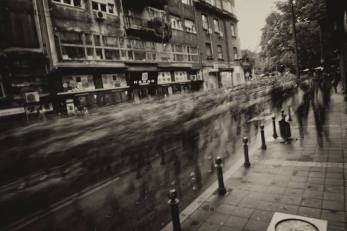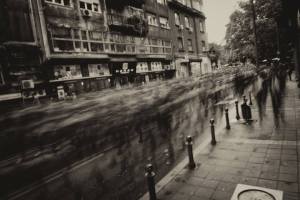a five-day workshop July 23rd-27th, 2012 Budapest, Hungary
Budapest Center for Architecture @ 5 Petőfi Sándor Str, Budapest (see on the map)
PROGRAM
MONDAY, 23 July
12.00 – 13.00
Registration and coffee
13.00 – 14.30
Talk: Mary Taylor via skype
The 2011 Neoliberalizing Socialism in Budapest: the 2011 CEU summer course
15.00 – 17.00
First Round of Introductions
All participants will briefly explain who they are, what they are fighting for (in research and activism) and introduce the institutions, publications, and groups with which they are affiliated.
18.00 – 19.00
Talk: Attila Melegh: “The Global 1950s”
TUESDAY, 24 July
10.00 – 11.00
Talk: József Böröcz: Whitening Histories
11.30 – 14.30
Excavating the origins of the neoliberal present in the late socialist past
Coordinators: Dan Cirjan, Rossen Djagalov, Piotr Wcislik
One of the recurring problems of most scholarship on postsocialism has been its tendency to build its analyses against the background of an undifferentiated socialist past, a homogenous set of institutions, economic practices and types of governance, which seem to have remained constant throughout the communist period only to be reshaped by the “great transformation” of the 1990s. This panel, by contrast, is based on the premise that a more nuanced, global, and historically informed perspective on late socialism will provide us with the much-needed understanding of the elements that were “re-formed”, reframed and re-organized through neoliberal policies under neoliberalism.
Late socialism also saw the emergence a particular type of discourse coming from dissidents, the “democratic opposition”, and reformists, which framed and interpreted “actually existing socialism” and its “crisis” outside of the official Party monologue. This type of discourse proved pivotal in shaping the postsocialist public sphere and paved the way for the “neoliberalization of the Left,” especially the reformist left, after 1989. In this sense, the panel has a dual aim: on the one hand, it seeks to understand the late-socialist reforms in the spheres of production and welfare provision and their relationship to world-economic processes, especially the capitalist restructuring of the 1970s and 1980s. On the other, it aims at reconstructing the process through which elements in the political thinking of the Left could lead to embracing neoliberalism as a progressive project.
15.30 – 18.30
History of class formation in CEE
Coordinators: Mikolaj Lewicki, Maciek Gdula, Adam Ostolski, Przemyslaw Sadura
The transformation of social structures after 1989 in so called post-communist countries is rarely analyzed with reference to the notion of class. The popularity of concepts such as inequality, social mobility and stratification contribute to naturalization of capitalism and do not form a basis for critique of new order. We would like to offer an analysis of social structures in Central and Eastern Europe from a number of class-oriented perspectives. The focus will be on three interconnected aspects:
changes in composition of class system, different class cultures and social conflicts. This approach offers not only a much richer perspective on what has happened during last twenty years but also allows us to pose questions about the prospects of social and political change.
WENSDAY, 25 July
10.00 – 14.00
“Is the revolution necessarily urban?”
Coordinators: Mariann Dosa, Csaba Jelinek, Zsuzsanna Pósfai
Many writings from critical/radical urban studies scholars since the 1980s highlight the pivotal role of cities and urban landscapes in neoliberal restructuring and governance. Apart from these theories, the emerging leftist struggles against the neoliberal hegemony have often been situated in and focused on the urban realm. An especially powerful and well-known concept encapsulating the intimate relationship between urban phenomenon and (counter-)hegemonic forces of neoliberalism is the Right to the City (RTC) framework developed by David Harvey. Another advantage of this conceptual framework is the way in which it links theoretical and practical approaches to change our cities. Recognizing the fact that many of the young critical scholars from our region have a special interest either in critical urban research or in urban movements, this session tries (1) to theoretically reflect on the role of cities in leftist countermovements, (2) to explore postsocialist specifics and differences within the region regarding urban policies, scholarship, marginality and movements and (3) to speculate about the potentials of a future urban focused coalition among the leftist actors in the region.
We will begin this session by introducing Harvey’s urban theories and his Right to the City concept. Afterwards, a case study of the Hungarian ’The City is for All’ grassroots group for housing rights will inform our discussion. Through this concrete example we will be able to address questions that we presume to be transversal in urban scholarship and activism.
After the case study, workshop participants will help us, through interventions, to establish our empirical base by answering the following questions about urban life in their societies: How was the privatization of the housing stock/ urban space carried out? Is there a housing crisis, and if yes, what characterizes it (is it quantitative, qualitative or accessibility crisis)? What is the structure of the housing sector and what are the main processes in it? What are the forms of urban marginality? What kind of mobilizations, forms of collective action are present? What are the centerpieces of current urban policy?
We will then move on to discuss the specificity of postsocialist cities and the applicability of the RTC framework to urban struggles here. (1) Can we agree with Harvey that — in this region not unlike his Western and Third-World examples — cities and urban movements should be crucial sites for leftist struggles? (2) Who are the agents of postsocialist urban movements (middle-class hipsters? vulnerable groups?) and what are the issues they problematize (homelessness, the urban environment), do they address the question of marginality? (3) What is the importance of an alliance between theory and practice in CEE cities? What are the main topics and dynamics of critical urban research in the various countries?
Finally, we will seek to determine possible lines of cooperation within this specifically urban topic.
15.00 – 19.00
Crisis, austerity, and countermovements, Part I. Movements on the right
Coordinators: Marek Mikus, Piotr Wcislik
In this panel we want to question the entanglements between neoliberal crisis, the postsocialist condition and the countermovements on the right. The goal is to see the real thing behind the various caricatures which proliferate in the academic descriptions, including on the Left. Most interpretations of nationalist protest movements classify them according to their sources or their political functions in the dynamics of postsocialist capitalism. As far as the sources are concerned, the interpretations range between the extemporaneous and contemporaneous arguments. The privileged trope of the former (traditional liberal) approach has been the “homo sovieticus,” designating a type of mentality unable to adapt to the postsocialist realities both in the marketplace (outdated welfare demands) and in the sphere of values (unprocessed xenophobia, traditional values, nationalism). The latter (more critical) argument assimilates the protest movements on the right under the umbrella term of “populism,” which is considered to be the product of the postpolitical condition of both Western and Eastern societies after 1989. As far as the political functions of those countermovements are concerned, the interpretations range between a “Troyan horse of capitalism” and a “surrogate Left” perspectives. In the first case, the focus is on how the objective economic sources of popular indignation are steered towards an (ethnic or ex-Communist) Other while redeeming the image of capitalism as a nice thing if run by decent people. In the second case, the ideological fundamentals of the nationalist right – such as the defense of popular sovereignty, critique of — hegemony and anti-elitism — are taken seriously to the extent that they overlap with left’s own agenda.
All these conceptual problems should include a comparative dimension in both time and space. Are the CEE nationalist protest movements from the 1990s the same as today’s? How do they compare with the far-right movements in Western and non-Western worlds? The objective of the panel is to rethink these interpretations with the view of the Left’s own strategy. Where is the place of the Left? With the liberals in a “popular front of modernization” or with the “people,” that is, the current constituency of right-wing protest?
THURSDAY, 26 July
10.00 – 14.00
Crisis, austerity, and countermovements, Part II. Movements on the left
Coordinators: Natalia Buier, Agnes Gagyi, Mariya Ivancheva, Piotr Wcislik
In the second session on countermovements to neoliberal regimes we discuss the contemporary movements associated with the left or considered as progressive both inside and outside the academia. We invite participants to introduce countermovements they know well so that we could reach a larger, international perspective of their workings as well as a sense of „what is to be done.”
Beyond serving to introduce relevant regional developments, the panel will problematize the study of social movements through a dual epistemological concern: on the one hand, it will ask how the array of recent social movements challenges our analytical tools as sociologists, anthropologists, students of history and culture; on the other hand, it also asks seeks to understand the inscription of dominant ideologies in the act of studying these movements and the complicity of academics in obscuring histories of militance. Our own relationship to those movements as both researchers and participants will be further discussed in the next panel: Academic struggles.
15.00-16.00
Talk: László Bruszt: Critical Sociology in the Era of Neoliberalism
16.00 – 20.00
Academic struggles: the position and task of the CEE academic left
Coordinators: Jana Bacevic, Natalia Buier, Rossen Djagalov, Agnes Gagyi, Mariya Ivancheva
The panel aims to be a theoretical reflection on our own work, as well as a strategic discussion about what we could do together, internationally.
We will begin with a discussion of the role of universities (as institutions) and higher education (as a field of knowledge production) in reproducing neoliberal ideology as well as its political and economic elites deploying that ideology. What are the implications of the changing conditions of knowledge production for the possibilities, stratagems, and spaces of resistance within the academe? Could critical pedagogy and activism be aligned within the university we know? What kind of epistemological challenge do practices such as militant ethnography pose? What do we make of the differences in position, history and vocabulary from similar questions asked in Western academia? From the institutional context, we will then move to the disciplinary one. Each of the disciplines represented at this workshop — anthropology, sociology, history, and so on — has a specific capacity for legitimating and critiquing neoliberalism. What would a leftist academic project look like in each of them? Finally, many of us also inhabit non-academic spaces, be they NGOs, journals of social critique, political parties. What is the relationship between our academic and non-academic engagements?
We invite participants to introduce the academic context of their work, join the debate about our common task, and think of possibilities of collaboration.
FRIDAY, 27 July
10.00 – 14.00
Interview Day
As many workshop participants happen to be editors or contributors to leftist magazines and web sites and as other, local publications might also join us, the last morning is left open for group/personal interviews and inter-publication networking. Those of us who are not giving interviews might just sit on the nearby terrace and continue our discussion over a few beers.
15.00 – 16.00
Wrap up
As a last move, we will share possibilities of further cooperation we could think of, and hopefully make practical steps towards them.



